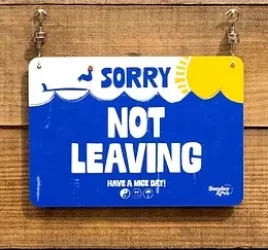
A short, and biased, testimony
Rachel and I have the privilege of traveling the world for our ministry and to live, mostly, in two countries, France and the USA. We were home in Colorado, when the COVID-19 crisis hit the world in early March 2020, and redefined Church and Ministry as we knew them.
Living in-between two worlds, gave us a unique perspective on how churches, on different continents, responded to the unexpected crisis that God allowed to rock our world.
The senior pastor of our local church in the States, Pastor John Leach, said one day: “Through the COVID-19 crisis, God allowed things that we thought were unshakable, to be shaken to their very core.” And in many ways, that is exactly what took place. No more flights, no more visiting mission fields, no more going to the office, no more of many of our ways of life that we were all taking for granted. Just shopping at the local supermarket became a challenge in many ways, while attending church was, maybe for the first time in U.S. history, not possible anymore.
I cannot speak for all the churches in the States, but here is my reflection of what I saw happening around us.
In the States, churches are, for most of them, well established in society, and their surrounding communities. They are rather large when compared to their Western European equivalents. In other words, they had a lot to lose… income sources for their multiple ministries, attendance, activities, etc… In response to the confinement, some of them decided to film their services, and put them online, while praying for things to go back to normal as soon as possible. The online services were considered a necessary evil, helping to compensate for the lack of in-person meetings. But it was not seen as something that could create a new avenue for churches to reach their unreached communities near or abroad.
In France, we witnessed something rather different. Because churches are usually a lot smaller, and are mostly not well perceived by society, COVID-19 became an opportunity ripe for the picking. Having fewer staff members, the financial crisis was less of a concern, even if it did threaten the existence of some mid-size churches.
The real game changer was many of them decided to invest their finances, time, and energy into creating new products online, such as videos intended for YouTube, that would have the capacity to attract newcomers, and people who would have, otherwise, never set foot in a church.
They were not just recording their Sunday services but creating a new way to reach non-church goers. Beyond the programs and products created, there was a new philosophy leading the change: the COVID-19 crisis was God’s opportunity to reach the world in a different way. Many leaders felt that ‘just waiting for things to get back to what they were before the crisis’, would be the equivalent of not understanding the reasons why God allowed His Church to be challenged in the first place.
As a result of their new investments, many of the churches in France saw a massive surge of people following their online services. Churches with a usual, in-person, attendance of a few hundred people, suddenly saw several thousands of viewers watching their YouTube videos, week after week. That trend continued for the two full years of the crisis (2020-2021).
Once the confinements and restrictions were finally lifted in the spring of 2022, pastors who had not invested in an online presence, wondered if their church members would come back, (they did but not entirely), while pastors who had invested in an online presence, wondered what would happen to their numerous new online followers.
This is where the rubber met the road, so to speak. What happened surprised them beyond their wildest expectations: Church attendance was much higher than they were before COVID-19, and the numbers have kept growing since.
What happened? People who rarely went to church, or whose church didn’t invest in an online presence, went online, discovered the Gospel in a new way, got saved or rediscovered their faith, and as a result, chose to join a local church. As a consequence, there is in France today, a new thirst for God growing in many churches.
I am fully aware we all lived those two years of confinement, and crisis, in various situations that are impossible to compare. I don’t have answers to all the why? but, what I saw deeply affected me and got me thinking.
Often, when we have a lot to lose, we are less willing to take risks and redefine the way we do things. Fear of change, and consequences, cripples us, while doing what we’ve always done, and cruising along with what everyone else is doing, is reassuring. There is nothing wrong with doing that, except that it creates a risk of becoming obsolete in an ever-changing world.
Our own ministry went through a very similar paradigm, while on a totally different scale. In a single week, our organization had 17 conferences cancelled! We knew that things would have to be different if we were going to survive the COVID-19 crisis.
We found ourselves forced to re-invent our ministry and take new risks by serving people in ways that we had never thought possible before.
Because of the pressure put on us, I came to realize that, when I am stuck in front of a ‘Red Sea’ that refuses to open, it’s sometimes God shaking up my world, pushing me outside of my comfort zone, and telling me, in a way only He can: “You have to try new things!”. Oh, I don’t like it, it often scares me, but I have to recognize that every time I let go of my ways, fears and insecurities, He shows me a new path that is exactly the answer I need.
Our Ministry survived the pandemic by developing new ways of serving and developed products offered entirely online. A novelty that has allowed our ministry to impact more of those in need than ever before.
What if the pandemic presented an opportunity for us as leaders, and pastors, to reinvent ourselves, and think of new ways to reach people where they are today?
How has COVID-19 impacted your IC? What answers have you found? What new venues have you tried because of it? How have you transformed this crisis into an opportunity to spread the Kingdom of God?



